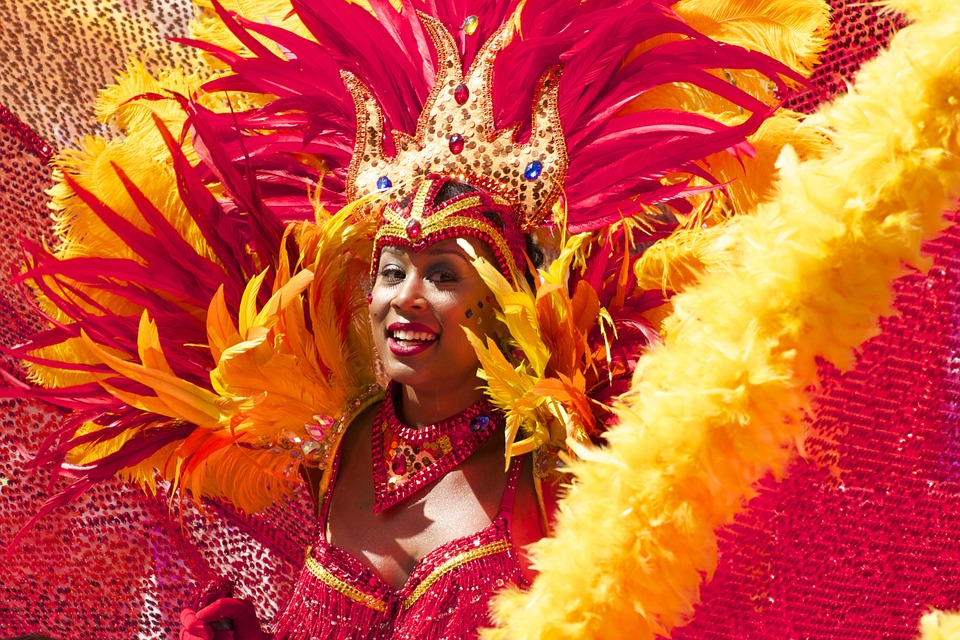Discover the Big Brazilian Carnivals Outside of Rio

Brazilians know how to celebrate big. Their festivals are colorful, dramatic, popular and loud, with popular music, dancing and parades of all shapes and sizes. The Rio de Janeiro Carnival is by far the biggest; taking place over five days from Easter Friday to the following Tuesday, parades, samba and concerts permeate the city.
The carnival itself holds the title of Guinness World Records' largest carnival, with over 400,000 people attending in 2004 alone. But what other carnivals are there? And what makes them so popular?
Bahia Salvador
Salvadorans celebrate a number of holidays throughout the year. Their ‘Fiestas Patronales’ each last several days and celebrate the various patron saints of Salvadoran towns. Their largest is the Bahian Carnival, which starts on the Tuesday before Ash Wednesday and it lasts six days.
The carnival itself features amazing trio elétrico parades, which are floats each carrying musicians around known tracts of the city. These floats are organized separately by independent companies called ‘Bloco’, each Bloco sells a unique ‘Abadá’ T-shirt which doubles as your entrance ticket to the restricted dance area close to each float.
The Bahia Carnival is an incredible spectacle of dancing and merriment, which follow the trio elétricos around the city for close to a week! Each year the city designates a theme for the carnival and decorates accordingly, so you can guarantee that you’re in for a unique experience every year.
Belém
Círio de Nazaré, Pará, is the largest festival on the river Amazon. It is a festival in honour of the Virgin Mary (the patron saint of the State of Pará). Minor celebrations begin in early September but the most of the revelry happens on the second Sunday of October when, for over five hours, more than one million pilgrims follow the statue of the Virgin Mary and Child through the streets of Belém.
The sounds of hymns, bells and fireworks accompany the procession as it works its way to Icoaraci and back in what has been termed one of the world’s largest religious gatherings. The celebration incorporates Catholic and Brazilian tradition, as well as Amazonian culture, cuisine and crafts and has long been a great cause of popular cultural diffusion within the Pará and the Amazon.
Although the Círio de Nazaré isn’t the largest party in Brazil, it is still an incredibly interesting and important cultural event, that is incredibly uplifting and humbling to participate in.
Carnivals have inspired everything from films such as Brazil Carnival to online slots like Samba Carnival, a five-reel title that features the colourful imagery and extravagance typically associated with such events. Brazilian street food like Picanha or Cassava Chips are sought after and eaten worldwide. These celebrations also bring in millions of tourists every year, which are incredibly important for the Brazilian economy.
Olinda
Olinda, the capital of Pernambuco, features an eleven-day carnival held over Easter. Preparation for the parade begins as early as Christmas, with impromptu parties (‘prévias’) and rehearsals happening all over the city, but it’s not until the parade of the 400 virgins (that is, men in drag) that the carnival officially starts.
Olinda Carnival is a magical time when it’s totally okay to dress up weirdly, fill your face and hair with glitter, throw your shoes away and dance on into the night with total strangers.
These carnivals play an important part in the cultural identity of each of the Brazilian states. Each one takes on the unique character of the area it’s in; Bahia Salvador with its trio elétricos will never drop its overwhelmingly musical vibe in favour of the more humble celebrations of Belém. And local traditions like Olinda’s 400 virgins can be found at each festival. As such, all of the festivals are worth the visit! The experience at every carnival is different, and nothing in the world is more welcoming than the streets of a popular Brazilian carnival.
Leave a Reply